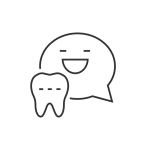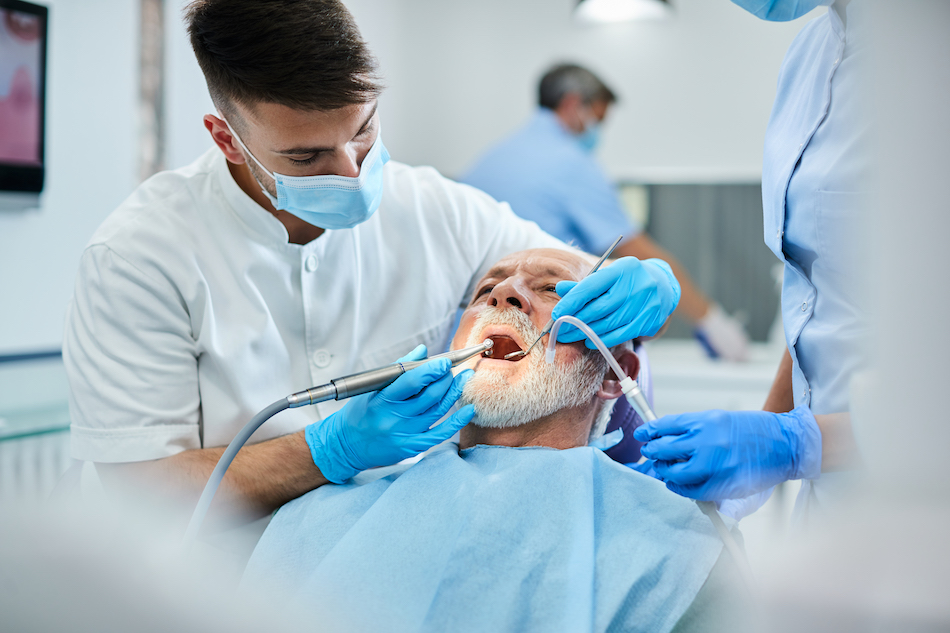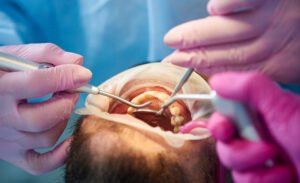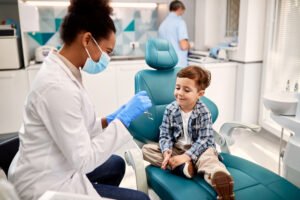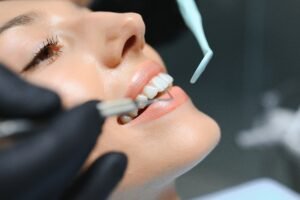Maintaining dental health is crucial at all ages but is particularly important in the aging population. The importance of dental health can’t be understated, and it is not merely about having a shining set of pearly whites.
The health of your teeth, gums, and mouth can significantly impact your overall health, well-being, and quality of life. This connection of dental health in the aging population is especially pertinent for the older generation as they experience various medical conditions, some of which could be linked to or aggravated by poor oral health.
This article delves into five compelling reasons why taking care of dental health is necessary for the aging population.
1. It Prevents Oral Diseases
The risk of developing oral diseases, including dental decay, gum disease, and oral cancer, increases with age. This is largely due to a decline in salivary flow, decreased immunity, and reduced dexterity making oral hygiene practices challenging and a lifetime of wear and tear on the teeth.
Must Read: How Dental Bridges Can Improve Your Smile and Health
Periodontitis, a severe gum infection that damages gums and can destroy the jawbone, is more common in older adults. Left untreated, it can lead to tooth loss. Tooth decay, especially around old fillings or the tooth’s root, is also common.
Oral cancer rates also increase significantly with age. For instance, according to the American Cancer Society, the average age at diagnosis is 62. Regular dental checkups can help identify these conditions early, providing a chance for effective treatment and better outcomes.
2. Link Between Oral Health and Systemic Diseases
Research has indicated a strong link between oral health and overall health. Conditions like heart disease, diabetes, respiratory diseases, and Alzheimer’s disease have all been linked to dental health in the aging population.
Chronic inflammation from gum disease has been associated with the development of cardiovascular problems such as heart disease, blockages of blood vessels, and strokes. Additionally, oral bacteria can enter the bloodstream and affect the heart valves.
Check: 5 Potential Root Canal Complications and Solutions To Consider Before Treatment
Diabetes reduces the body’s resistance to infection, putting the gums at risk. Gum disease appears to be more frequent and severe among people with diabetes, and research shows that people with gum disease have a harder time controlling their blood sugar levels.
Poor oral health can also affect respiratory health, particularly in older adults. The bacteria from the mouth can be inhaled into the lungs, leading to respiratory diseases such as pneumonia.
Regarding cognitive health, some studies suggest that oral bacteria may contribute to brain changes that lead to Alzheimer’s disease.
Must See: Your Smile & Your Health: The Connection You Might Not Know About
Given these links, maintaining oral health isn’t just about avoiding a toothache—it’s crucial to reducing the risk of serious health issues.
3. Impact on Nutrition and Digestion
Having healthy teeth and gums isn’t only crucial for a smile and vital for eating and digestion. Problems with teeth or gums can lead to difficulty chewing, preventing older adults from eating various healthy foods, leading to nutritional deficiencies.
Must Read: Invisible Alignment: The Invisalign Revolution in Teeth Straightening
Inadequate nutrition can exacerbate existing health issues and result in weight loss, muscle weakness, and a decreased ability to recover from illnesses. Poor oral health can also lead to digestive issues. The digestive process begins in the mouth, and poor oral health can interfere with properly mixing food with saliva, affecting the entire digestive process.
4. Quality of Life and Self-esteem
Oral health can greatly impact an individual’s quality of life and self-esteem. Dental diseases can affect a person’s comfort, appearance, speech, and social interactions, which can lead to embarrassment and social anxiety.
Must Read: 10 Everyday Oral Hygiene Tips For Better Health
A healthy mouth enables individuals to speak, smile, smell, taste, touch, chew, swallow, and convey a wide range of emotions through facial expressions, all essential for quality dental health in an aging population. Furthermore, severe dental decay or tooth loss can cause chronic pain, reducing a person’s quality of life and restricting their daily activities.
Therefore, maintaining oral health is crucial to preserving an aging individual’s overall well-being and enjoyment of life.
5. Longevity
One of the most compelling reasons for maintaining dental health is its link to longevity. Studies have shown a connection between gum disease and shorter lifespan. A study published in the A research found that people who had lost all their natural teeth had a significantly increased mortality risk, indicating a potential link between long-term survival and oral health.
Must See: Discover the Best Teeth Cleaning Services Near You for a Brighter, Healthier Smile!
Oral health is not just about preventing dental diseases. It’s also a vital part of maintaining overall health and well-being, which can profoundly affect an individual’s lifespan. Ensuring good oral health can increase not just the length of life but the quality of those extra years lived.
Conclusion
In conclusion, dental health plays a significant role in the aging population. The benefits of maintaining oral health are extensive, from preventing oral diseases and reducing the risk of systemic diseases to improving nutrition and digestion, enhancing the quality of life, and even potentially increasing longevity. Dental health must be noticed in pursuing a healthy and fulfilling life in our older years.
Read More: Guide to Finding the Best Dentist in Calgary for Perfect Oral Health
Maintaining oral hygiene and regular dental checkups becomes increasingly critical as we age. The adage “an ounce of prevention is worth a pound of cure” rings true regarding dental health in an aging population.
Simple steps like brushing twice daily, flossing daily, eating a balanced diet, and scheduling regular dental visits, can make a significant difference in preserving oral health and overall well-being in the aging population.
It’s always possible to start focusing on oral health. Even those who have neglected it in the past can make a difference by starting to prioritize it now. Remember, your mouth is the gateway to your body’s health; taking care of it is an investment in your overall health and well-being as you age.

